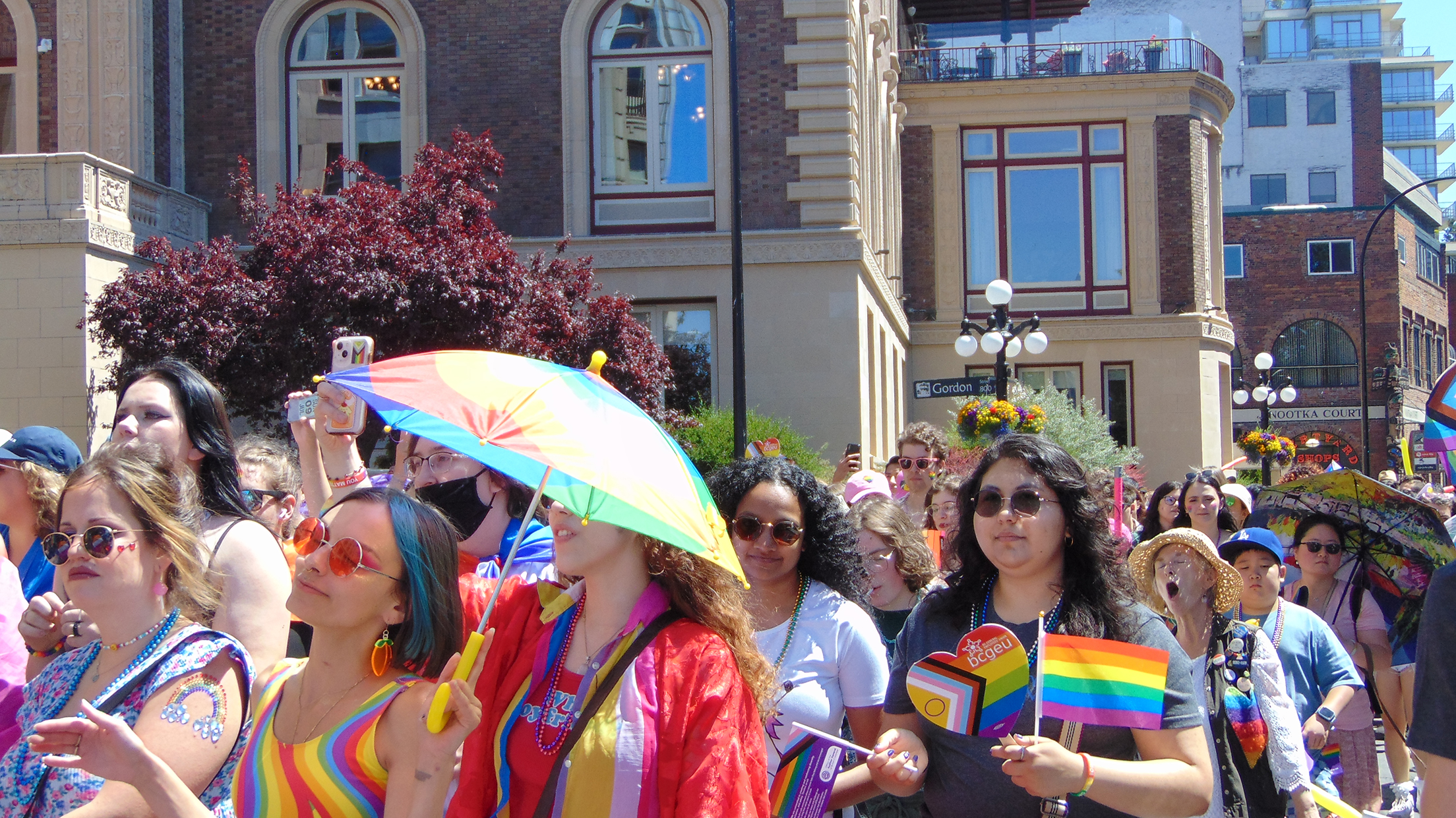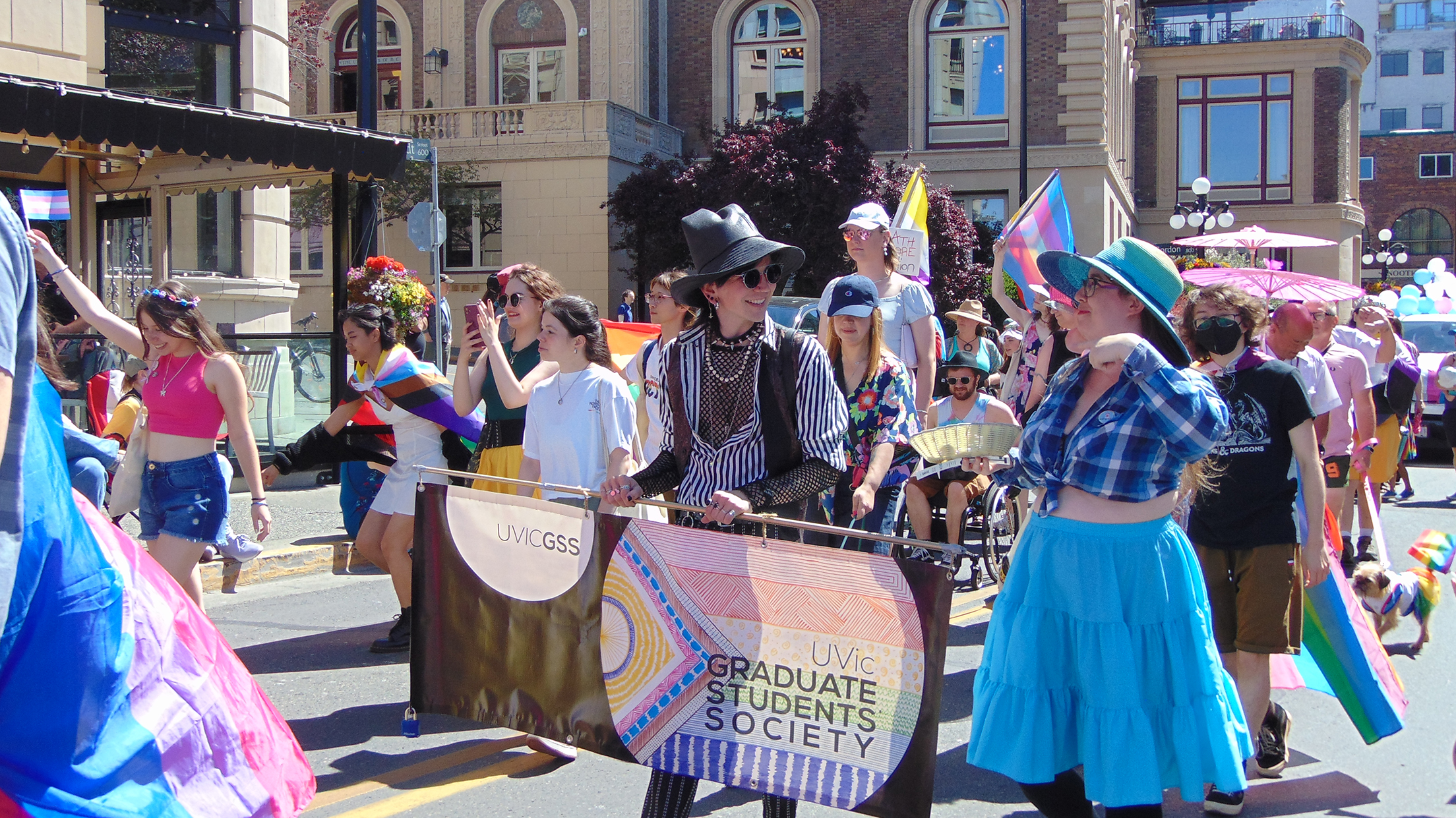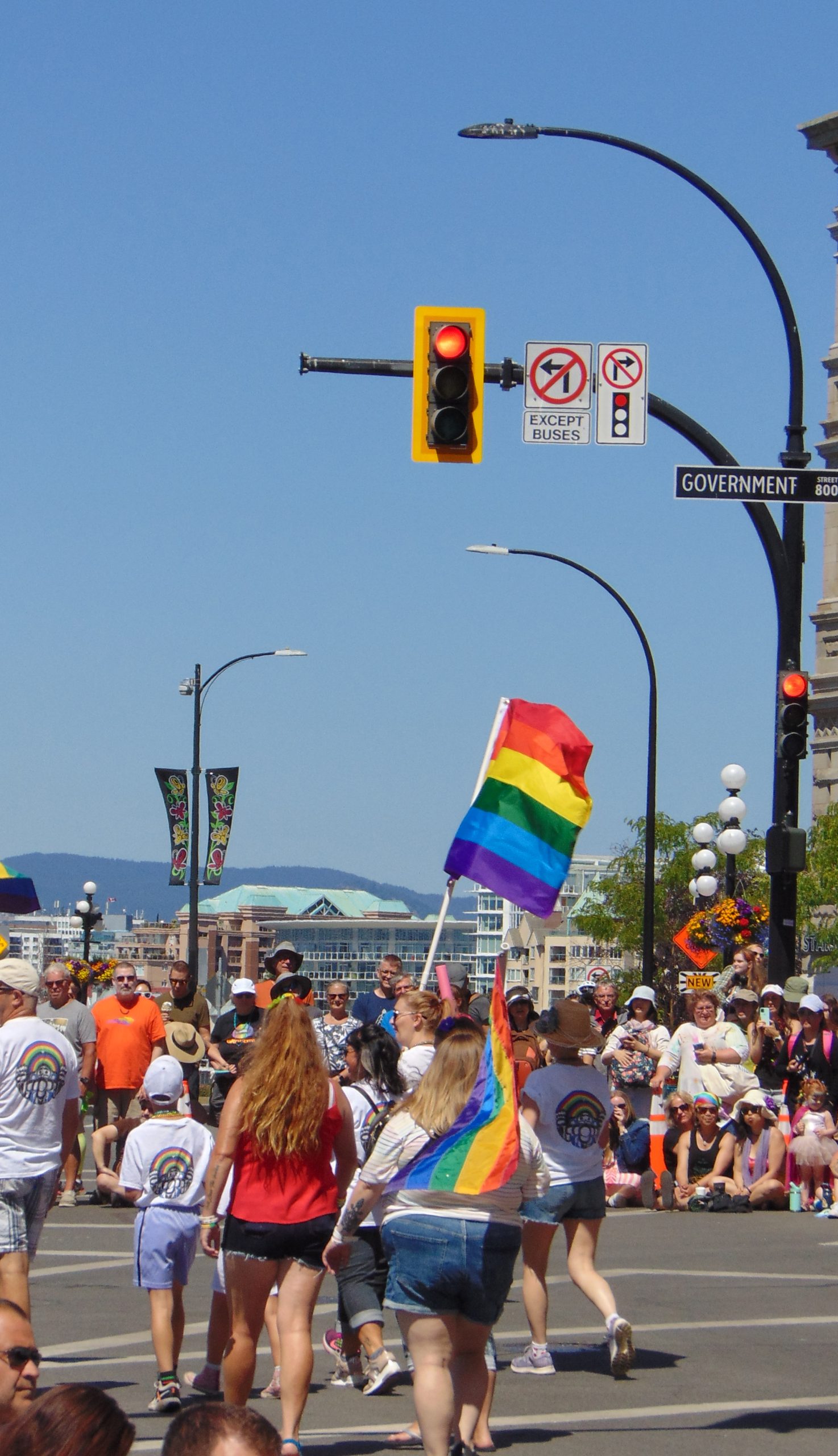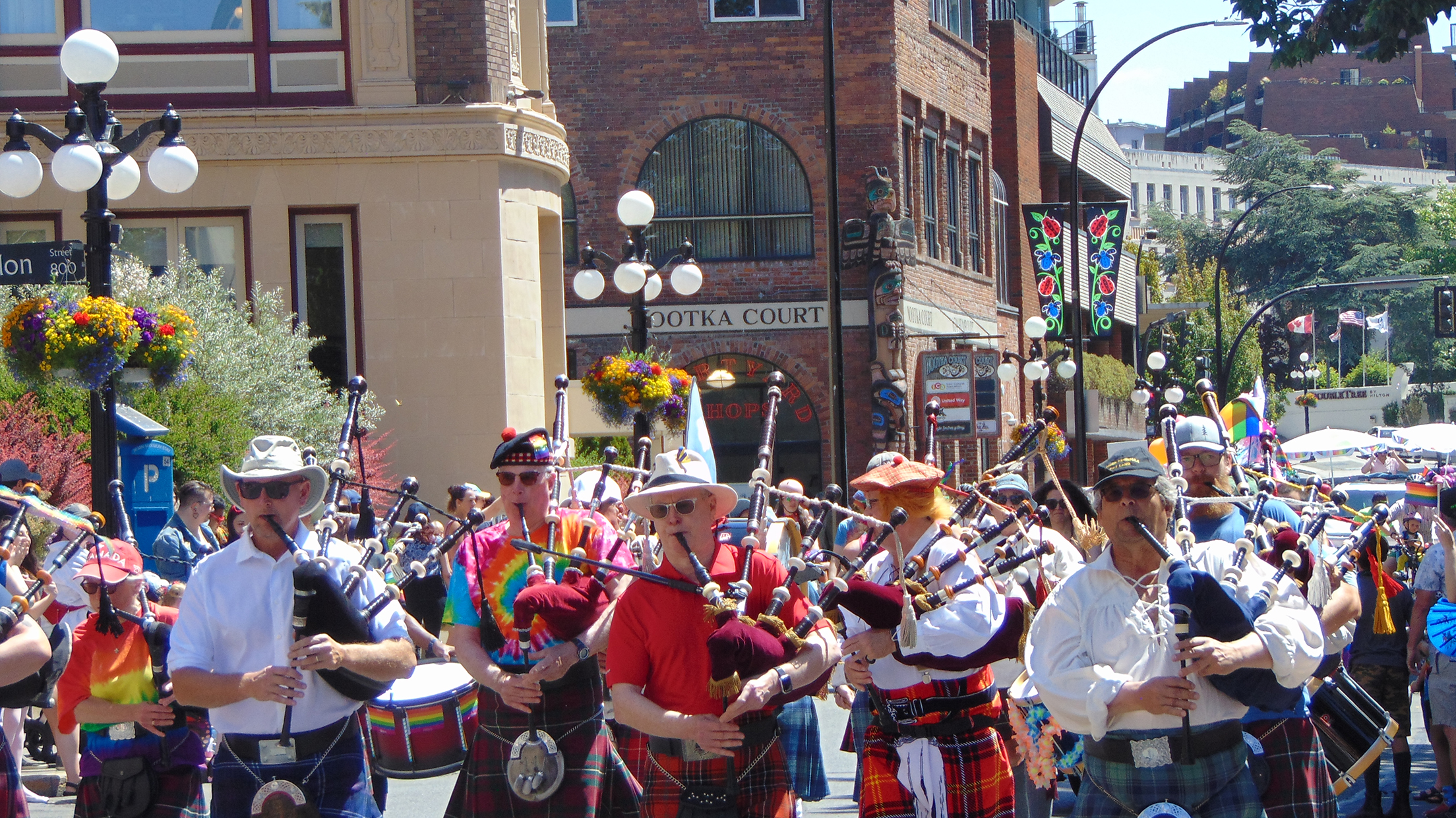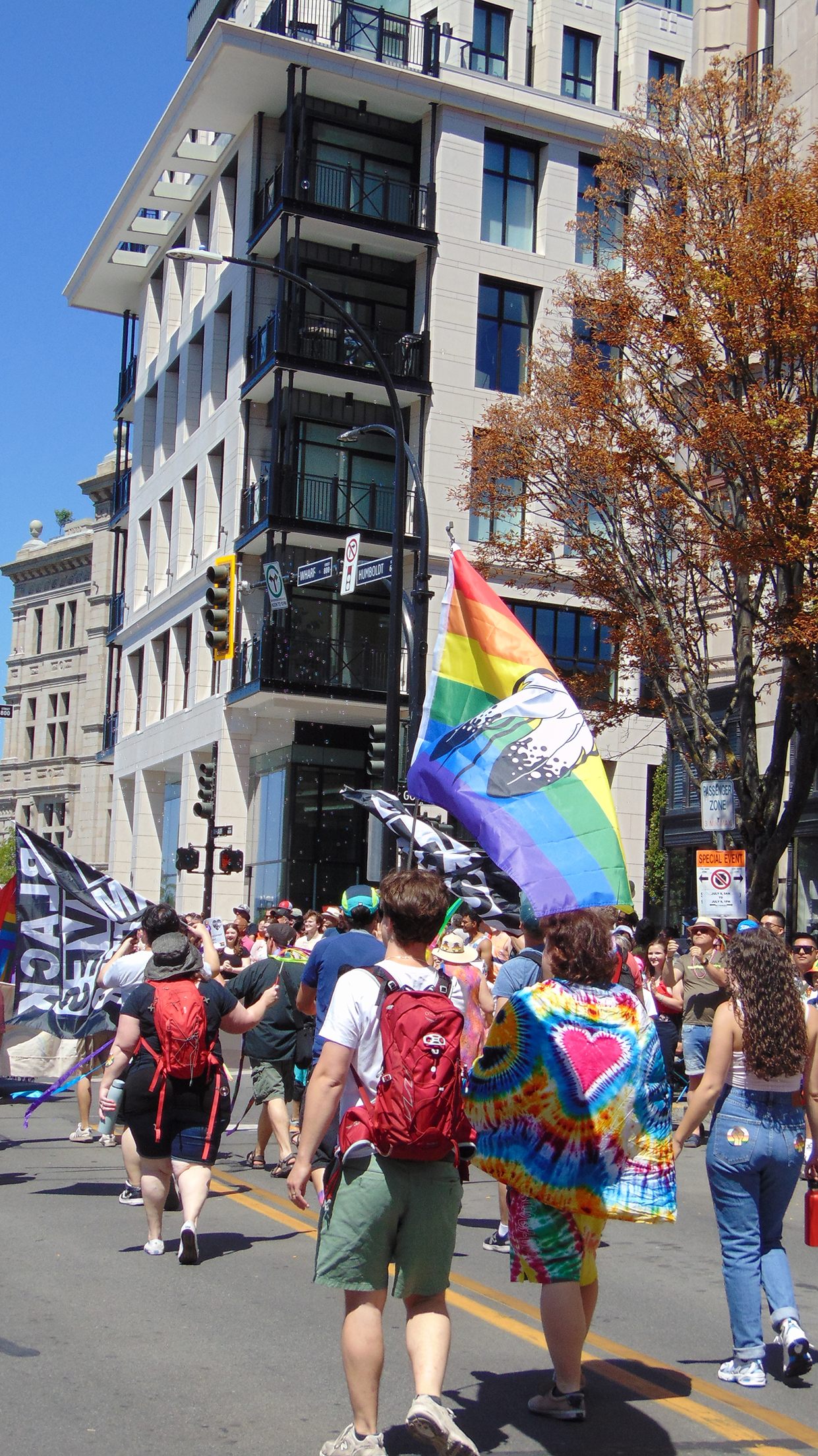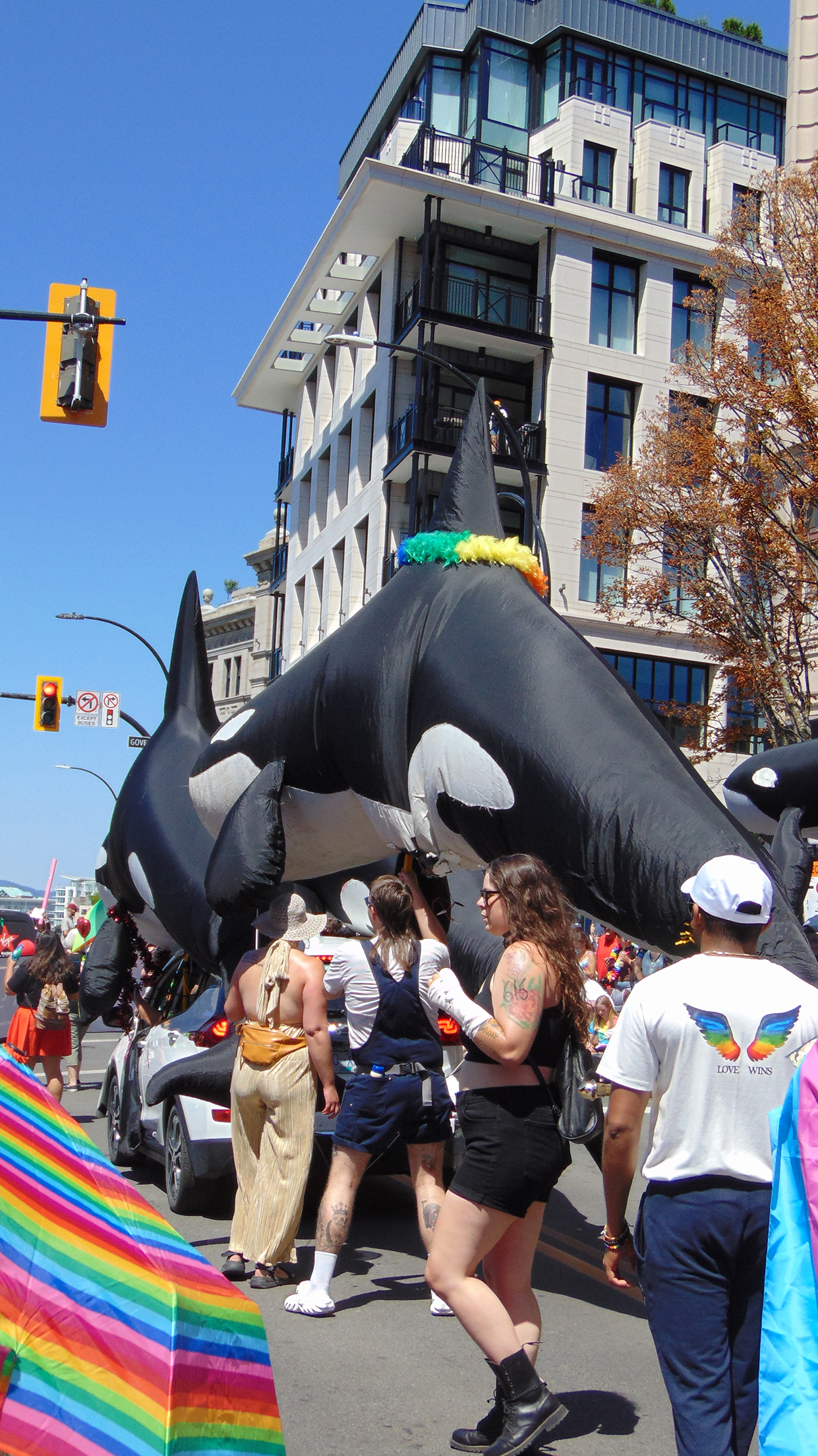Victoria Pride Society communications manager reflects on the history of Pride
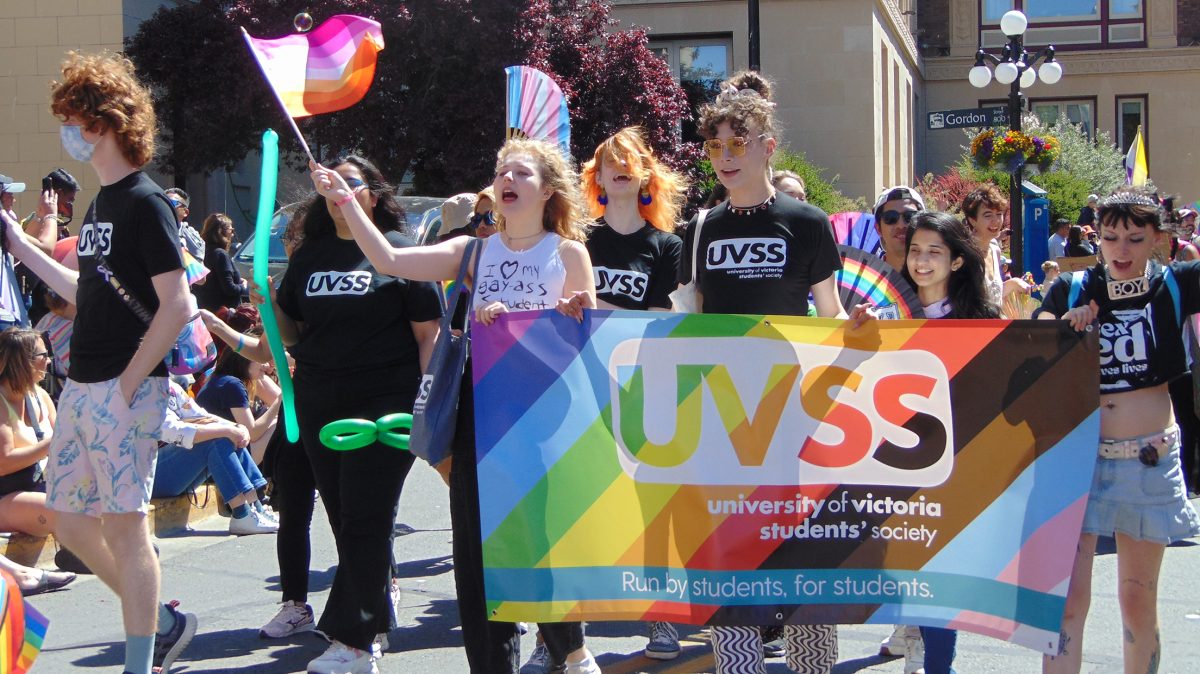
Photo by Sie Douglas-Fish.
It’s no secret that Victoria has a significant LGBTQ2S+ community. Despite persistent hate crimes targeting the community across the country and beyond our borders, Pride has been an empowering movement since its inception and continues to inspire and educate. In Victoria, Pride has evolved from a single day in June to a season of festivities throughout the summer. What started as a small march down Government Street by a few hundred supporters in 1993, has transitioned into one of the most anticipated events of the year.
This year, the city witnessed a plethora of events during the celebration of Pride in June and July. Some of these events included a queer masquerade, a memorial drag ball game, a queer activism night, the big gay dog walk, and a literary Pride event featuring writers from the LGBTQ2S+ community. The peak of these events was the Pride Parade on July 9 in downtown Victoria. With over 40 000 spectators and 120 entries, the parade was led by the Songhees Nation. The event concluded with festivities held at MacDonald Park, including food vendors, a kid’s zone, and a variety of entertainers.
Ahead of the 30th annual parade and festival, the Martlet caught up with Cristin Platt, the communications manager at the Victoria Pride Society, to discuss all things Pride.
“We’ve come so far,” Platt said about the evolution of Pride since the nineties before gay marriage was legal. “There was a lot of judgment,” she said, remembering the time when gay jokes were not only acceptable, but cool.
Platt, who is 53, considers herself a young member of the community. While she hasn’t experienced bomb threats, been beat up, or fired, she has almost been denied housing and lost friends and family because of her identity.
“I used to never wear these glasses,” Platt, who now wears Pride glasses every day, said. “Drag queen story time and all of these different things never would have happened 20 years ago. There would have been protests and anti-protests against Pride, and now the city shuts down for [the Pride Parade].”
As an example of this change, Platt points to The Free Mom Hugs movement which was started by Sara Cunningham, a Christian mother in Oklahoma who struggled to accept her son’s sexuality at first. Her love for her son led her to learn more about the LGBTQ2S+ community and, upon learning about the shame and hurt the community faces, she chose love over her spiritual sentiments. She attended the Oklahoma City Pride Festival in 2015 wearing a homemade “Free Mom Hugs” button. She hugged hundreds in the parade and touched the lives of many participants who did not receive love from their mothers because of their identities. It was the start of a nationwide movement that has now reached Canada.
Like Free Mom Hugs, Platt hopes to foster a sense of community and support.
“Pride isn’t only in June; Pride is all year long,” Platt said. The future plan for the Pride Parade in Victoria is to make it an all-year event instead of a monthly celebration.
“Pride has been a protest from day one,” Platt said. “We’re here — we’re not going anywhere.”



